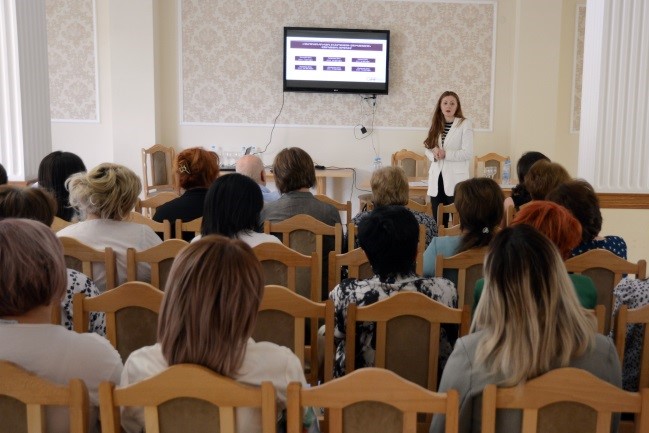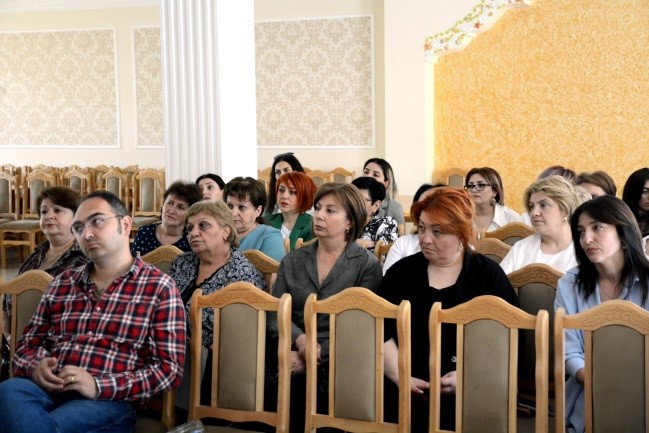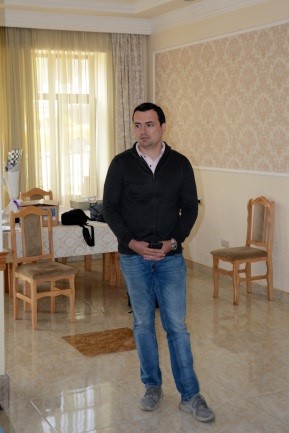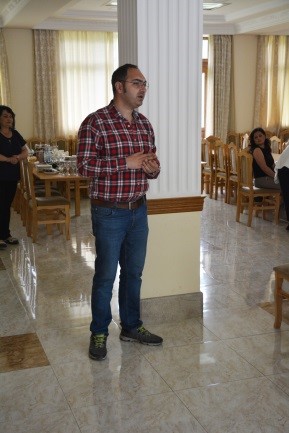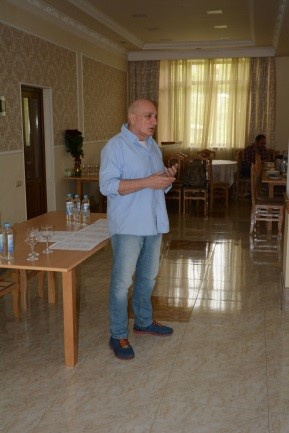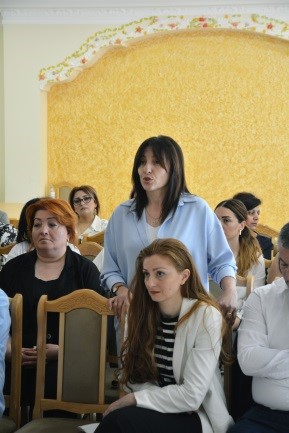Awareness Raising Workshops for Women Entrepreneurs in Areni and Goris
On 30 and 31 May, 2024, awareness-raising workshops for women-led micro and small enterprises in Armenia were held in Areni and Goris respectively, within the framework of the KfW financed "Promotion of Renewable Energies" Program (GAF-RE Phase VI).
The events were organized by “German-Armenian Fund” PMU and Fichtner GmbH & Co. KG, with the support of Program Financial Institutions, in response to a proposal to organize awareness raising events for women entrepreneurs in the Syunik region made by several participants of the workshop in Yerevan.
Same as previous workshops, the aim of the workshops held in Areni and Goris communities was to introduce the objectives of the GAF-RE Program and explain the financial and technical benefits of the loans offered by the Program to women households and women-led enterprises for the construction of up to 500 kW PV power plants. Along with that, the event was aimed to inform the participants on the regulatory framework for small-scale autonomous PV systems, share success stories and lessons learned that may be very important for entrepreneurs planning to install PV systems, as well as outline key environmental and social considerations to be taken into account when designing and constructing PV systems.
The workshop in Areni, hosted up to 20 participants representing women-led households and enterprises as well as several commercial banks involved in the lending process in the region.
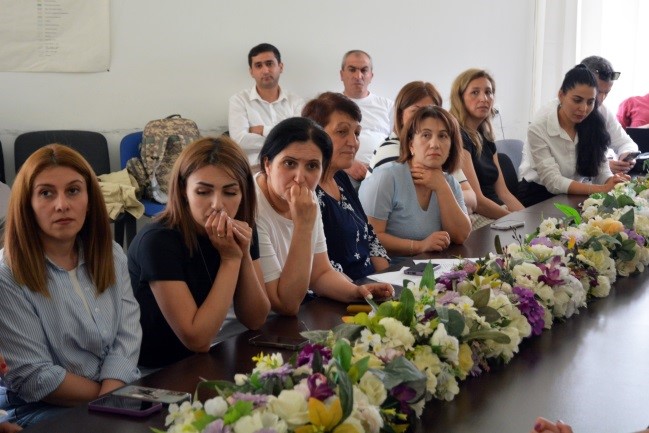
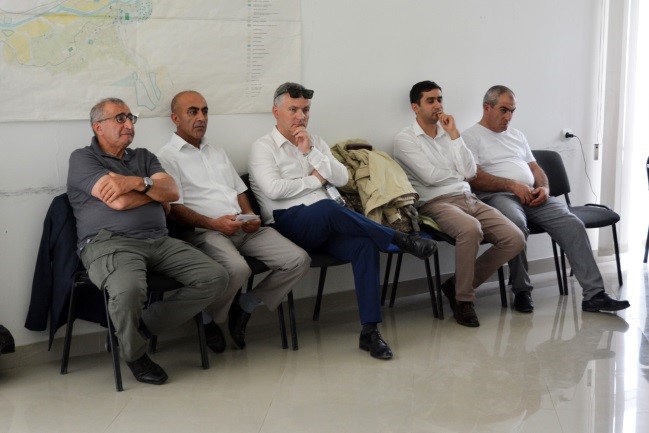
The session was opened with a welcome address by Mrs. Gayane Khachatryan, Director of the "German-Armenian Fund (GAF)" acting as the project management unit (PMU). In the subsequent presentation given by Mrs. Khachatryan, the background, management structure and main objectives of the PMU, as well as general overview on cooperation with key donor organizations, in particular with KfW and loan programs implemented by GAF were introduced.
In her presentation, Mrs. Khachatryan also focused on the technical assistance accompanying the PMU’s programs financed by the German Ministry of Economic Development and Cooperation which is one of the most attractive components of the GAF programs.
Mrs. Satenik Ghevondyan, Senior Project Manager of the PMU, updated the audience on the distribution of funds per each phase of GAF-RE Program, the statistics of the implemented SHPP, PV and SWH projects as well as on the regional distribution profile of credit funds. The presentation of Mrs. Ghevondyan was followed with information on the scope of eligible projects, the loan terms, and main functions performed by Fichtner GmbH & Co. KG, the technical consultant of the Program.
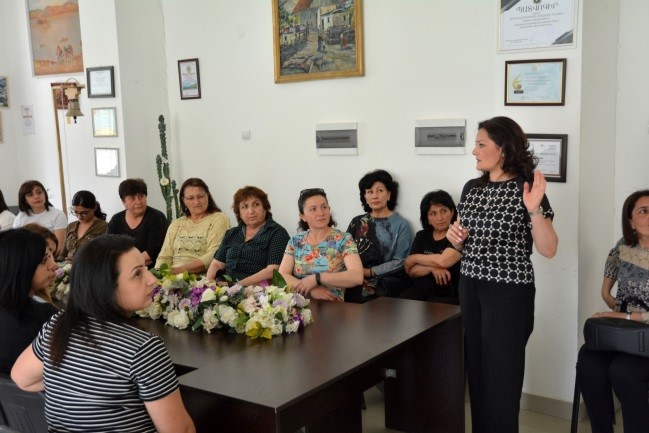
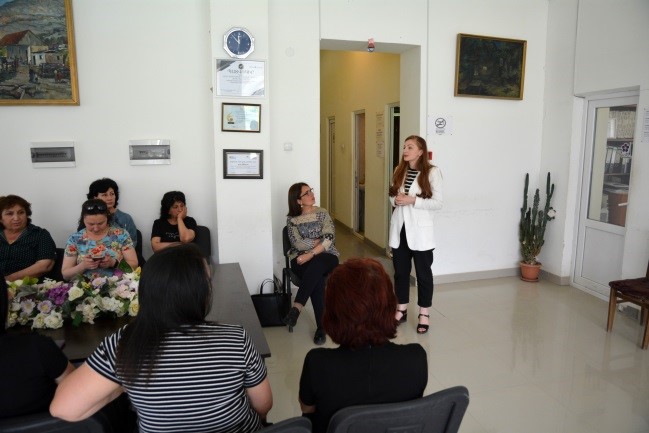
The session was continued by presentations delivered by Mr. Arsen Hayriyan, Fichtner’s Local Legal Expert and Mr. Andre Ohanian, Fichtner’s Local Technical Expert.
Mr. Hayriyan provided an overview of the latest legislative changes establishing favorable conditions for autonomous energy generation by individuals and businesses through the net-metering scheme. He also highlighted the eligibility of new schemes, allowing groups of autonomous producers with a total installed capacity of 1050 kW, enabling production and consumption of electricity at various metering points. Special attention was paid to the assessment of economic feasibility of individual small-scale PV installations. To that end, Mr. Hayriyan demonstrated a table with simple pay-back periods for PV systems with a capacity from 5 to 150 kW.
Mr. Ohanyan’s introduced the principle of PV cells and panels operation, structure of the PV panels, differences between off-grid and on-grid PV facilities, main installation issues identified during the construction of utility-scale PV plants, such as the stability of load-bearing structures when exposed to soil erosion, corrosion of support structures, shallow cable laying, exposed live parts, etc.
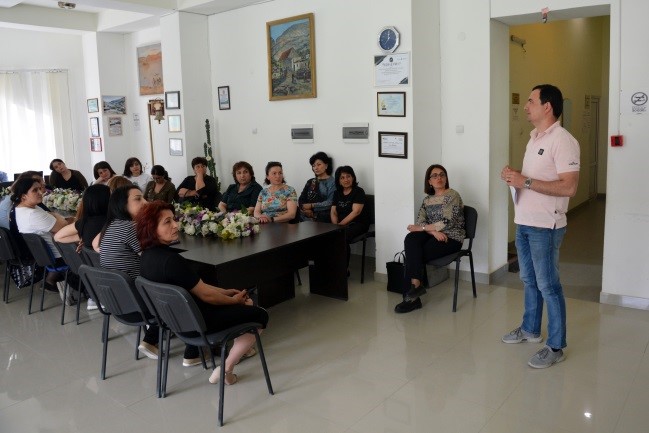
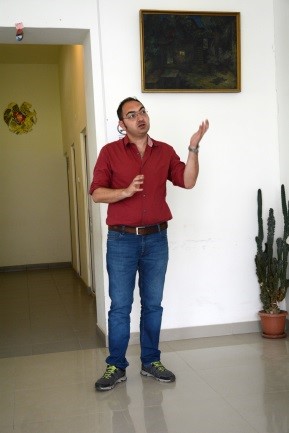
The workshop was continued with a presentation of Mr. Hrant Ter-Gabrielyan, Head of Engineering Team of the R2E2 Fund (Fichtner’s local subcontractor), on the project evaluation process and installation challenges of small-scale roof-top and ground-mounted PV systems.
In particular, Mr. Ter-Gabrielyan introduced and clarified the list of key documents that applicants are expected to submit to the Consultant for the evaluation of the PV project, outlined the most common mechanical, civil and electrical issues encountered during monitoring of PV power plants, explained the consequences of the detected deficiencies on the stability and reliability of PV systems and proposed corresponding mitigation actions.
The workshop was concluded with the presentation on Environmental, Social, Health and Safety requirements of the Program, delivered by Mr. Arayik Tsaturyan, GAF ESHS Expert. In his presentation, Mr. Tsturyan stressed the importance of the availability of proper first aid kits and personal protection equipment and underlined the benefits of housekeeping of the project site during construction and operation. Special attention was paid to the proper disposal and recycling of damaged PV modules aimed to prevent contamination of soils and groundwater with heavy metals such as lead and cadmium.
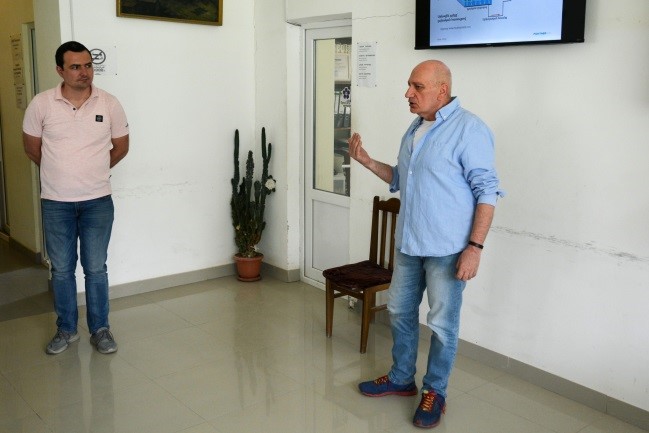
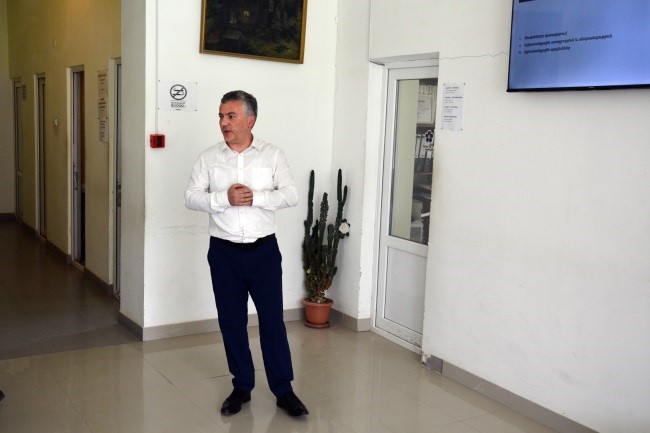
The presentations were followed by a Q&A session during which participants asked questions regarding issues associated with technical and ESHS aspects of the design, construction and operation of small-scale PV plants.

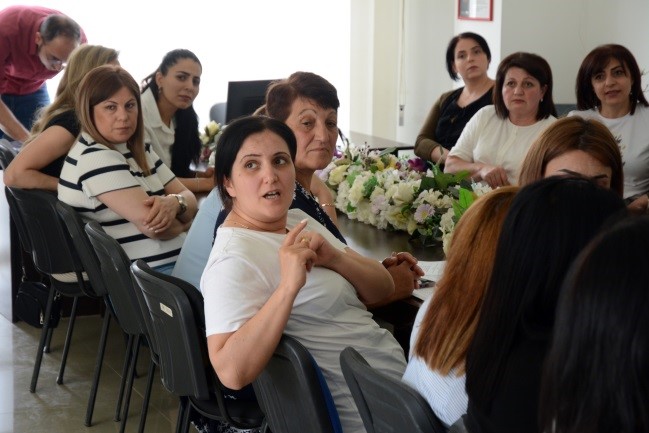
The workshop in Goris also brought together up to 20 representatives of local women-led households and enterprises and covered the same topics as the event held in Areni.
During the discussion that followed the presentation session, questions were voiced regarding: the possibility of obtaining more preferential terms for financing projects in the border regions, influence of geography and climatic conditions on the efficiency of PV systems, warranty duration of operation of individual elements of the PV systems such as modules and inverters, quality assurance during the construction and installation of PV systems, etc.
The representatives of GAF and the Consultant addressed the questions from the audience. Particularly, it was stressed that all projects financed and implemented through the GAF-RE Program undergo appropriate technical and financial due diligence, supplemented with regular monitoring of the construction and installation process.
